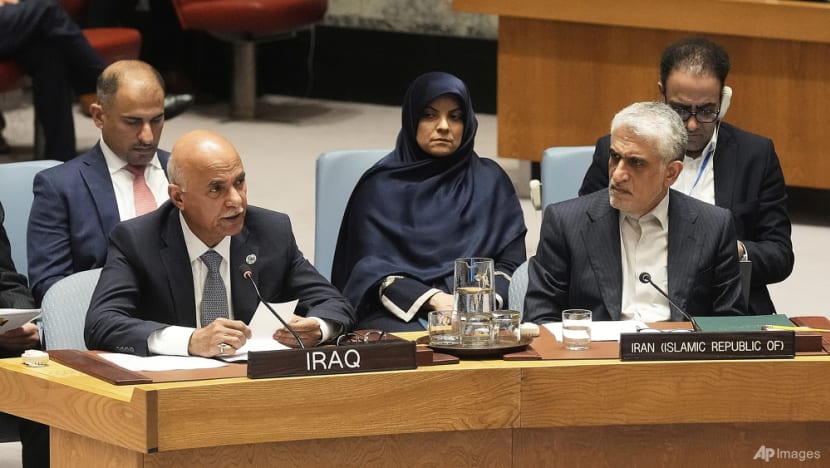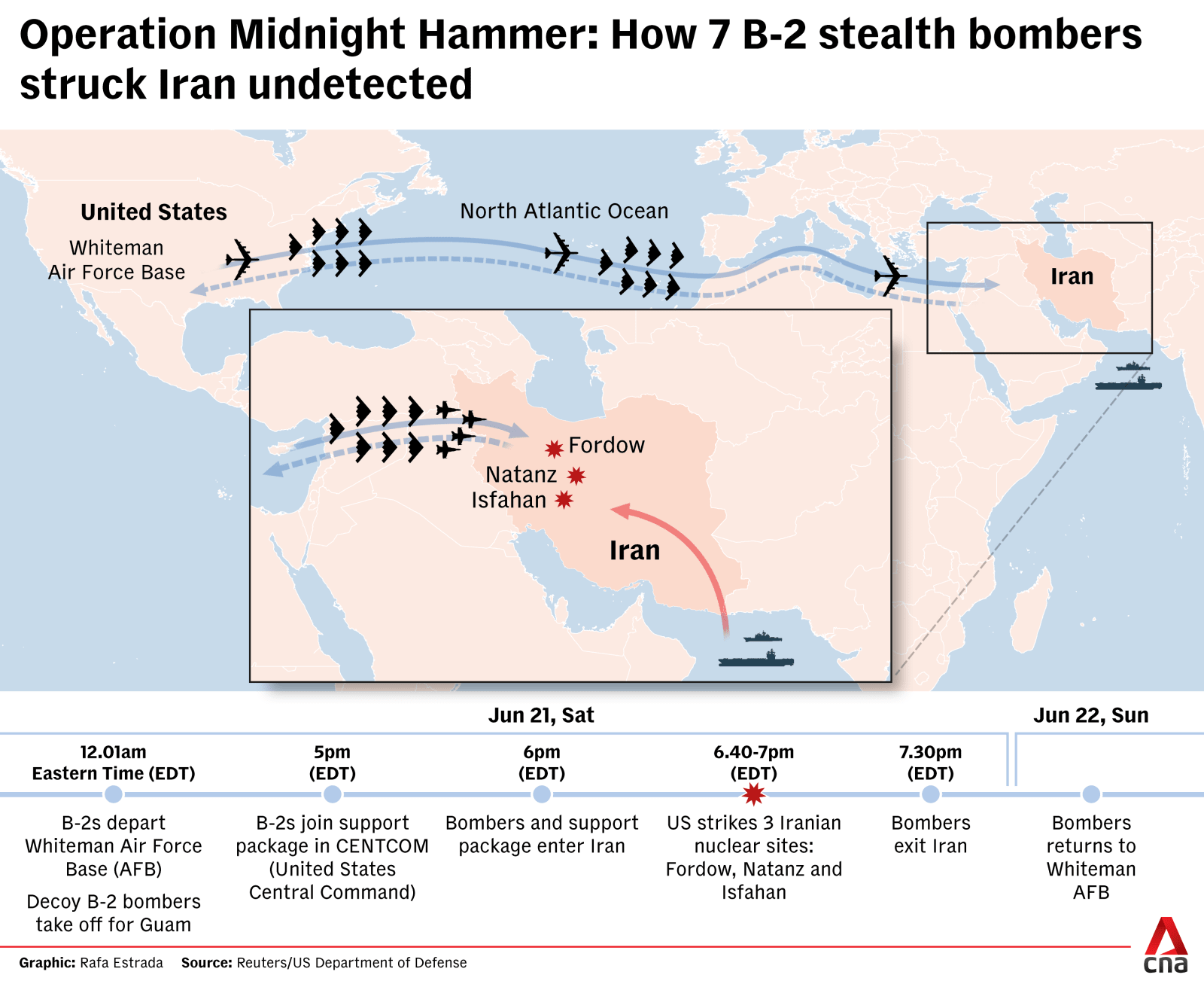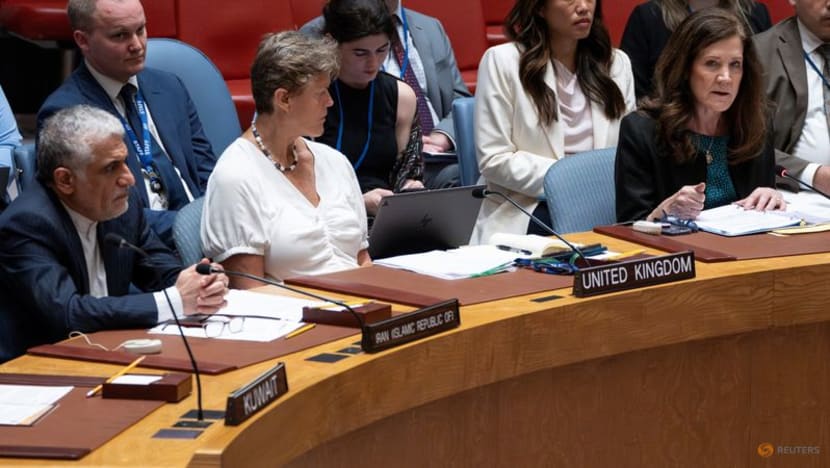Security Council meets on Iran as Russia, China push for a ceasefire

Iran Charge d'Affaires of Iraq to the UN, Dr. Abbas Kadhom Obaid, left, addresses a United Nations Security Council meeting, Friday, Jun 20, 2025, as Iran UN Ambassador Amir Saeid Iravani, listens at right. (Photo: AP/Richard Drew)
UNITED NATIONS: The UN Security Council met on Sunday (Jun 22) to discuss US strikes on Iran's nuclear sites as Russia, China and Pakistan proposed the 15-member body adopt a resolution calling for an immediate and unconditional ceasefire in the Middle East.
"The bombing of Iranian nuclear facilities by the United States marks a perilous turn," UN Secretary-General Antonio Guterres told the Security Council on Sunday. "We must act – immediately and decisively – to halt the fighting and return to serious, sustained negotiations on the Iran nuclear programme."
The world awaited Iran's response on Sunday after President Donald Trump said the US had "obliterated" Tehran's key nuclear sites, joining Israel in the biggest Western military action against the Islamic Republic since its 1979 revolution.
Russia and China condemned the US strikes.

"Peace in the Middle East cannot be achieved by the use of force. Dialogue and negotiation are the fundamental way out at present, said China's UN Ambassador Fu Cong. "Diplomatic means to address the Iranian nuclear issue haven't been exhausted, and there's still hope for a peaceful solution."
But acting US Ambassador to the UN Dorothy Shea told the council that the time had come for Washington to act decisively, urging the Security Council to call upon Iran to end its effort to eradicate Israel and terminate its drive for nuclear weapons.
"Iran long obfuscated its nuclear weapons program and stonewalled our good-faith efforts in recent negotiations," she said. "The Iranian regime cannot have a nuclear weapon."
'US FAIRYTALES'
Russia's UN Ambassador Vassily Nebenzia recalled former US Secretary of State Colin Powell making the case at the UN Security Council in 2003 that Iraqi President Saddam Hussein constituted an imminent danger to the world because of the country's stockpiles of chemical and biological weapons.
"Again we're being asked to believe the US's fairy tales, to once again inflict suffering on millions of people living in the Middle East. This cements our conviction that history has taught our US colleagues nothing," he said.
Iran requested the UN Security Council meeting, calling on it "to address this blatant and unlawful act of aggression, to condemn it in the strongest possible terms."
It was not immediately clear when the council could vote on the draft resolution. Russia, China and Pakistan have asked council members to share their comments by Monday evening. A resolution needs at least nine votes in favor and no vetoes by the US, France, Britain, Russia or China to pass.
The US is likely to oppose the draft resolution, seen by Reuters, which also condemns attacks on Iran's nuclear sites and facilities. The text does not name the United States or Israel.
Israel's UN Ambassador Danny Danon said in a statement on Sunday that the US and Israel "do not deserve any condemnation, but rather an expression of appreciation and gratitude for making the world a safer place."
Danon told reporters before the council meeting that it was still early when it came to assessing the impact of the US strikes.

UN nuclear watchdog chief Rafael Grossi said that while craters were visible at Iran's enrichment site buried into a mountain at Fordow, "no one - including the IAEA - is in a position to assess the underground damage."
Grossi told the Security Councilthat entrances to tunnels used for the storage of enriched material appear to have been hit at Iran's sprawling Isfahan nuclear complex, while the fuel enrichment plant at Natanz has been struck again.
"Iran has informed the IAEA there has been no increase in off-site radiation levels at all three sites," said Grossi, who heads the International Atomic Energy Agency.














